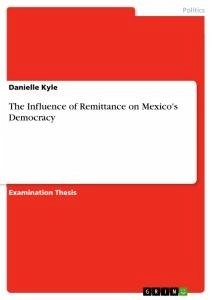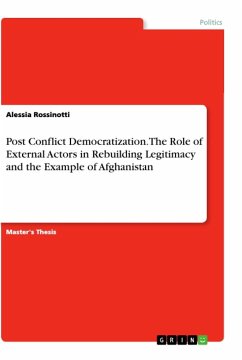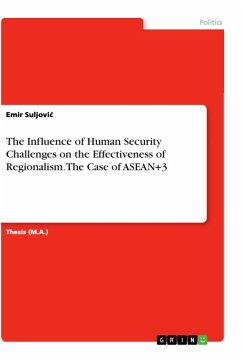Examination Thesis from the year 2017 in the subject Politics - International Politics - Region: Middle- and South America, grade: A, University of Mannheim, course: Latin American Politics, language: English, abstract: This work provides an in-depth look at the way remittance effects democratization in Mexico.As globalisation continues to increase and new technologies make communication over long distances more accessible, it should come as no surprise that migrants play a role in shaping their home country's politics. As a new democracy, and the home country of many migrants, Mexico provides a fascinating landscape to research these developments. According to the World Bank, approximately 2% of Mexico's GDP comes from financial remittances. How do remittances shape Mexican politics? Remittance is often spoken of in terms of finances - even Webster defines remittance as "a transmittal of money (as to a distant place)". Even so, it is important to consider the effect of social remittances as well, which is "the exchange" (or transmittal, as Webster likes to say) "of ideas, skills, practices and know-how". The political process is shaped by more than economy and finances, and although both play an important role, it is necessary to consider the social aspects that contribute to policy and democratization as well. While much research has been done on the economic and social effects of remittances, there is a clear gap in studies on the political consequences. Economics and social values form political issues and movements, so it is important to understand how remittances contribute to politics as well. With anti-immigration sentiments playing a large role in recent political movements, there has been a focus on the effects of immigration in receiving countries, as opposed to sending countries. Social remittance through family members living in countries with more developed democracies can make individuals more critical of their own country's politics. Financial remittance can make individuals less reliant on patronage systems). Based on this information, I hypothesize that remittance helps promote democratization in Mexico through increased political engagement, holding institutions accountable and encouraging competitive elections.








